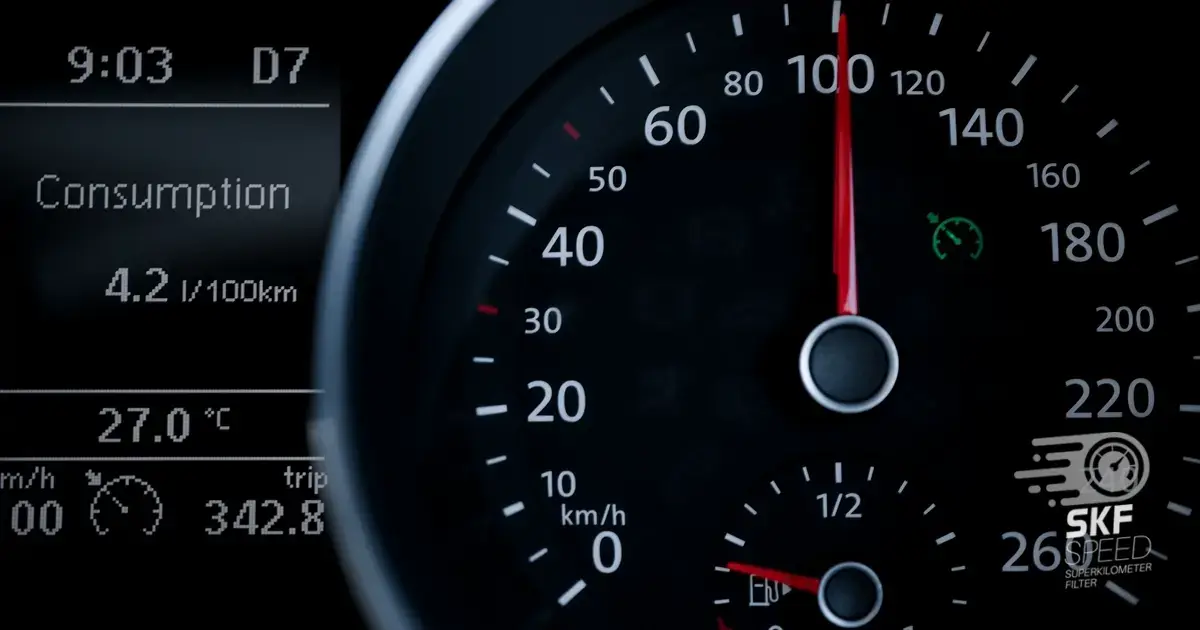
Mileage is a crucial indicator of a vehicle’s overall performance and resale price. Higher mileage means that the car has driven more, causing more wear and tear on important components such as the engine, suspension, and transmission. The mileage factor also plays an important role in forming resale value in the used car market. Speaking generally, lower mileage vehicles are more desirable for many buyers, as they mean that the vehicle components experience less wear and tear and need fewer repairs in the near future.
It would not be fair to focus only on one area when we talk about mileage. There is a connection between mileage and different components of the automobile. Many car owners have misconceptions about those connections, so it is vital to be aware of various car-related situations and the function of mileage carries under different circumstances. Let’s discuss the topic thoroughly: what mileage indicates for fuel efficiency, tire change, or used car market. Is it really a connection between replacing the engine and the mileage reset, or is it just a misconception? We will take a closer look at the purpose of the mileage data in various contexts.
Car mileage represents the total distance a vehicle has traveled, serving as an important indicator of a vehicle’s wear and tear but not the only decisive factor, as many may think. Hence, a lower mileage display is more desirable for potential buyers and makes them think that opting for a lower mileage vehicle guarantees reliability and less potential maintenance cost. Surely, the buyer’s motivation is not mindless; sometimes, focusing on this information serves well. However, there are also cases when it leads to misjudgment. For example, a car with 20,000 miles can be in a worse condition than a car with 50,000 miles. Reasons behind such cases come from various factors, such as auto brand and maker, production year, owner’s driving habits, geography etc.
So, it is vital to be alert when estimating the general condition of the automobile; there is a high chance of misjudging it because of many widespread stereotypical ideas. For example, some people tend to ignore many of the automobile’s good qualities just for the sake of high mileage figures on the odometer. This is mostly the fallacy many buyers fall into.
In the following paragraph, we will discuss the mileage in the context of fuel efficiency and determine the calculation method for individual vehicles.
Mileage has two different understandings of fuel efficiency:

To calculate mpg you should divide the number of miles driven by the number of gallons of fuel used. For individual calculation, you need to do the following:
The more mpg a car has, the more fuel-efficient it is. Remember that efficiency doesn’t depend solely on the manufacturer. It also depends on the type of car, road conditions, and the driver’s driving habits. For example, hybrid cars offer sustainable solutions when it comes to energy (fuel) efficiency. Or, if you drive gently, with a steady speed, and avoid idling and hard acceleration, you use less gas than you think you need.
We should strive for sustainable automobiles, not only for cost-effectiveness but also for the future of our planet. Sustainable automobiles on the road mean decreasing carbon footprint. To make an informed decision you need to research and learn more about the topic.
In the following paragraph, we will find the truth about the connection between the new engine and mileage.
According to popular misconception, mileage resets after replacing the old engine with a new one. The truth is that mileage doesn’t reset after an engine change unless someone intentionally tampers with the odometer. Even after the engine is replaced, the odometer shows the number of miles the vehicle has traveled throughout its lifetime; this number doesn’t show the distance the car has covered with the new engine.
Individuals are motivated to reset miles for two different reasons:
When a car has bigger tires than usual, it affects the accuracy of the odometer reading. Additionally, it negatively impacts mpg. Let’s see what may happen when the automobile has bigger tires:
Bigger tires intend to make unforeseen changes, so estimate possible outcome before installing them.
Proper mileage management is a game-changer for general maintenance and the vehicle’s resale value. When you have an accurate odometer reading, you can easily follow the maintenance schedule and better understand what your automobile requires at certain times.
If you are a potential buyer of a used automobile, accurate odometer data is more meaningful. Sometimes, it takes effort to ensure the accuracy of the provided information. Nowadays, consumers constantly face odometer fraud. Odometer fraud is a malicious practice of tampering with (resetting or rollbacking) the odometer with the intent of deceiving potential buyers to gain financial profit. Inaccurate data indirectly results in increased maintenance costs and potential mechanical issues. For example, lower mileage vehicles are more attractive for potential buyers; it is associated with less wear and tear and less mechanical issues in the near future. When it is not realistic, buyers become victims of the fraud. They pay a higher price for the vehicle, which is not worthwhile.
So, mileage management matters only when it is done properly and honestly. No matter whether you are a seller who is eager to sell a vehicle or just the car enthusiast who want to take a good care of the owned automobile.
In the upcoming paragraph, we take a closer look at widespread techniques for modifying mileage.
People use mileage rollback devices and mileage correction tools to modify mileage. These devices are connected to the car’s computer, and it’s possible to make desired changes. These tools are freely available online, and they are usually used to fix malfunctions or diagnostics. Hence, manufacturers are not responsible for their illegal usage.
As usual, there is one common fault of those devices: They can roll back existing miles from the odometer display, but they can’t erase/change the genuine data from other control units of the automobile. So, the information is easily detectable.
People are constantly searching for reliable devices to modify mileage. They even try to use advanced tools for malicious purposes. For example, a Mileage blocker is an advanced tool that stops counting mileage unconditionally. It is a perfect innovative solution for anyone who wants to stop mileage recording in a controlled environment.

The mileage blocker unconditionally halts the mileage recording process for all control units. It is produced in Germany with premium-quality components. The device is outstanding on the market due to its features:
The device is created for ethical purposes, and installation is legal in most countries. It is illegal to deceive potential buyers of your vehicle. So, you should use it in a controlled environment and always notify the next owner of your automobile about it. The device is available for almost all car makers and models. You can purchase it directly from the website.
Mileage means a lot for many aspects of the vehicle. The accuracy of mileage data is crucial because it helps manage many aspects of the vehicle, such as maintenance, resale value, and fuel efficiency. To put it simply, proper management assists you in making informed decisions.




Here you will find all the details about our company
Here you will find shipping and return related information
Here you will find information on all technical questions
Here you will find helpful information about installation